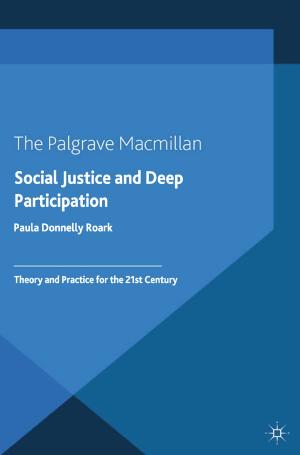The Globalisation of Intercultural Education
The Politics of Macro-Micro Integration
Nonfiction, Reference & Language, Education & Teaching, Educational Theory, Educational Reform, Philosophy & Social Aspects| Author: | Christina Hajisoteriou, Panayiotis Angelides | ISBN: | 9781137522993 |
| Publisher: | Palgrave Macmillan UK | Publication: | June 14, 2016 |
| Imprint: | Palgrave Macmillan | Language: | English |
| Author: | Christina Hajisoteriou, Panayiotis Angelides |
| ISBN: | 9781137522993 |
| Publisher: | Palgrave Macmillan UK |
| Publication: | June 14, 2016 |
| Imprint: | Palgrave Macmillan |
| Language: | English |
This book examines the intersection of globalisation and intercultural education by focusing on the trajectory of education policy: from development to adoption and implementation.
The centrality of the nation-state has been constrained by a wide range of new socio-cultural, political and economic phenomena over the past decade such as globalisation, Europeanisation, modernisation, and global recession. The main implications of these developments have only just begun to unfold, and continue to be debated by policy-makers, academics, and educators. However, it is widely accepted that global socio-political and economic developments have allowed supranational institutions, functioning across nation states rather than within them, to perform many state functions with regards to education policy development and implementation. Yet, much remains unknown (and under-researched) about the impact of these still-nascent developments on the trajectory of intercultural education. This book sets out to fill in this gap by examining the intersection of globalisation and intercultural education through macro-micro integration. After all, for modern societies to establish social cohesion, education research should examine issues of citizenship, democracy, and intercultural education under the lens of globalisation.
This book examines the intersection of globalisation and intercultural education by focusing on the trajectory of education policy: from development to adoption and implementation.
The centrality of the nation-state has been constrained by a wide range of new socio-cultural, political and economic phenomena over the past decade such as globalisation, Europeanisation, modernisation, and global recession. The main implications of these developments have only just begun to unfold, and continue to be debated by policy-makers, academics, and educators. However, it is widely accepted that global socio-political and economic developments have allowed supranational institutions, functioning across nation states rather than within them, to perform many state functions with regards to education policy development and implementation. Yet, much remains unknown (and under-researched) about the impact of these still-nascent developments on the trajectory of intercultural education. This book sets out to fill in this gap by examining the intersection of globalisation and intercultural education through macro-micro integration. After all, for modern societies to establish social cohesion, education research should examine issues of citizenship, democracy, and intercultural education under the lens of globalisation.















